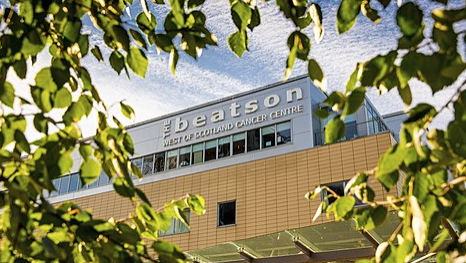Patients the focus of new iCARE programme
The West of Scotland Innovation Hub has put patients at the heart of forward-thinking solutions as part of the new ‘iCARE’ programme.
‘iCARE’ (Innovation in Cancer Care for and with patients) project started as an interactive survey focused on engaging patients, alongside clinicians, and directly involving them with the co-design of their own health services.
The survey had more than 200 participants at the Beatson West of Scotland Cancer Centre, and more than 50 per cent were patients (100 staff, 121 patients).

The survey asked what people felt were priorities for innovation in cancer care and where problems exist that could be addressed by innovation.
And the results of iCARE suggest that staff are most concerned about delays in the diagnostic pathway and resource management, which are well documented, however patients offered a fresh insight into what matters most to them in terms of cancer care.
Possibly the most interesting discovery for clinicians is that patients are more concerned with the length of wait during hospital appointments rather than the wait in receiving an appointment.
Another recurring theme amongst patients was a demand for peer-to-peer support within the patient cohort as well as support for families and carers.
Patients completing the survey showed a clear need for more effective communication between different branches of the treatment pathways.
iCARE showcased the value of patients sharing their lived experience, and the impact this could have in designing a more empathic and streamlined cancer care pathway.
When asked about their participation one patient said: “I have been treated with the utmost respect, and great humour.”
Consultant Oncologist and Cancer Innovation Lead for the West of Scotland Innovation Hub, Ioanna Nixon, led the design and delivery of this program and noted, “While we have the initial three partners of NHS, academia, and industry; we need to add a fourth dimension. Patients need to be key partners.
“Staff can see the broader treatment picture, but patients see it in the context of their day to day life. This is what we have to remember when taking forward our plans for innovation.”
The results of this forward-thinking survey have highlighted the impact of listening to patient needs in real-time, and will no doubt prove key in delivering innovation in the cancer treatment pathway.